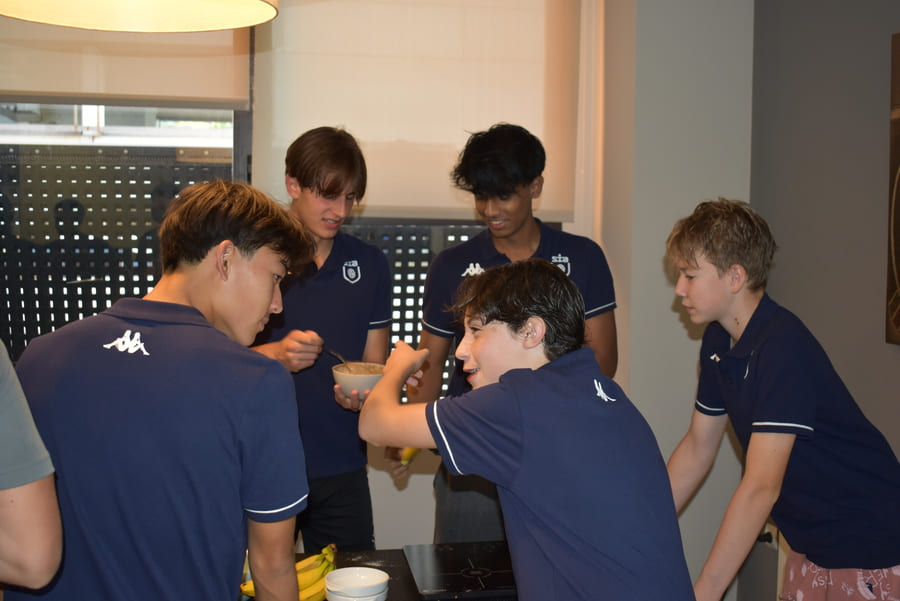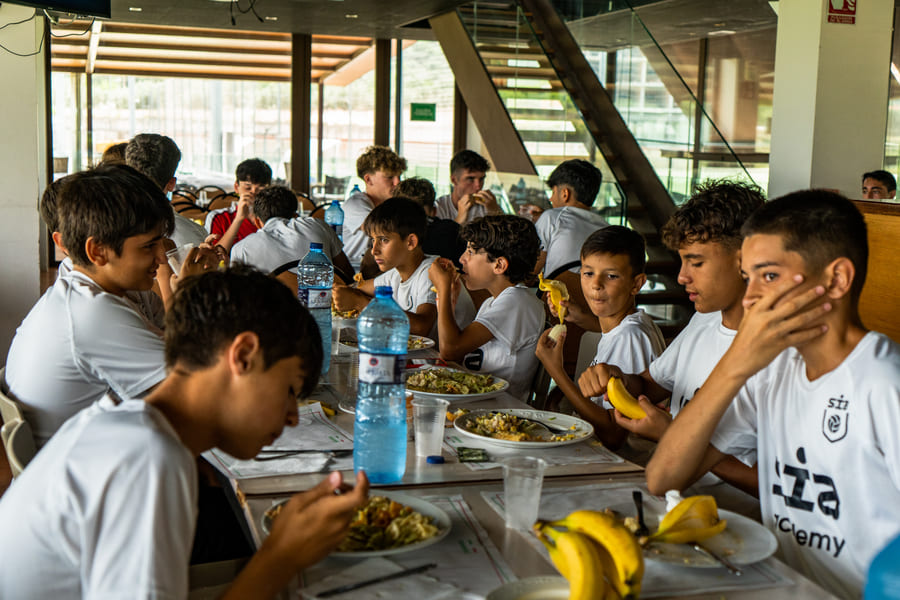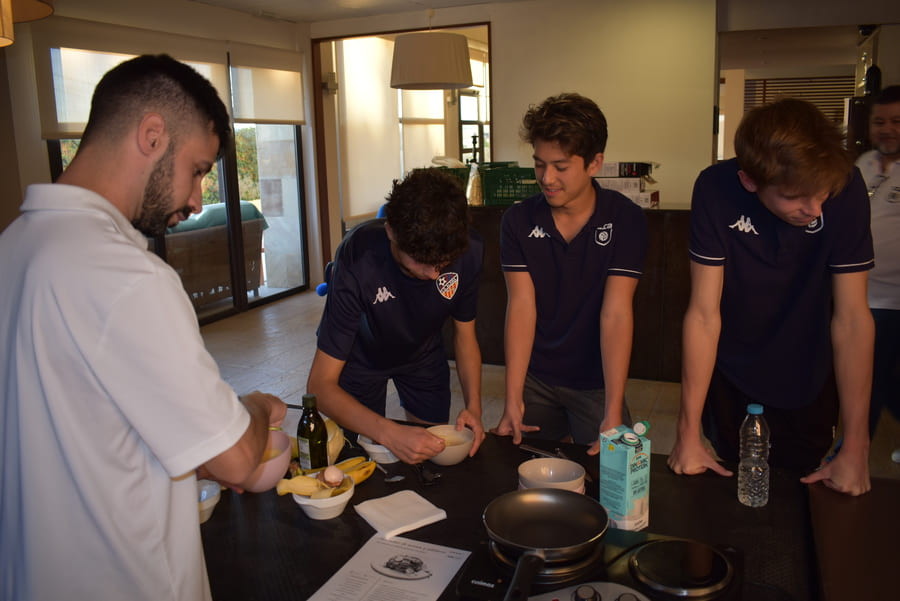Nutrition is one of the most important—and often underestimated—keys to a footballer’s physical performance. Beyond training and rest, the foods a player consumes on a daily basis directly impact their energy, focus, recovery, and injury prevention. At SIA Academy, nutrition is an integral part of the work done with players, from young talents in development to elite-level athletes.
Cristóbal, the academy’s nutritionist, explains it clearly:
“Food is not just fuel. It’s also a tool to train better, recover faster, and perform at the highest level.”
Below, we break down the five best foods to improve physical performance, all of which are regularly included in SIA Academy’s nutrition plans.
Table of contents
1. Oats: steady energy and consistent performance
Oats are a slow-digesting complex carbohydrate, ideal for maintaining stable energy levels during long training sessions or matches. They’re rich in fiber, B vitamins, and minerals like magnesium and iron.
At SIA Academy, many breakfasts start with a bowl of oats, often served with fresh fruit, nuts, or a touch of honey. Oats help avoid glucose spikes, which means fewer energy crashes and better physical and mental output.
“It’s one of the most complete foods we offer. It provides energy, satiety, and it’s easy to digest—something essential before a morning session or match,” says Cristóbal.

2. Banana: muscle recovery and instant energy
Bananas are rich in potassium and fast-absorbing carbohydrates. They’re a go-to option before and after training at the academy.
Thanks to their potassium content, bananas help prevent muscle cramps and support post-exercise recovery. Their natural sweetness also makes them an ideal and practical snack, whether in a player’s backpack or locker room.
At SIA Academy, bananas are often part of the afternoon snack or offered right after sessions to kick-start glycogen replenishment.
3. Egg: high-quality protein for tissue repair
Protein is essential for repairing and building muscle tissue. And eggs contain one of the highest biological value proteins, meaning it’s among the most efficiently absorbed by the body.
In SIA Academy’s kitchens, eggs are prepared in many forms: boiled, scrambled, poached. Paired with carbs like rice or whole grain bread, they form a balanced and complete meal.
Besides protein, eggs contain healthy fats, choline (which supports cognitive function), and antioxidants like lutein. A perfect option for post-training meals.
4. Salmon: natural anti-inflammatory and heart ally
Salmon is an excellent source of omega-3 fatty acids, a healthy fat that reduces inflammation, protects joints, and improves blood circulation. This leads to better muscle oxygenation and more efficient recovery.
At SIA Academy, oily fish like salmon or mackerel are included in player dinners—especially on high-load days or after matches. The combination of proteins, healthy fats, and micronutrients makes it a highly functional food for athletes.

5. Spinach: essential micronutrients for performance
Often overlooked, spinach is a plant-based superfood rich in iron, calcium, vitamin C, A, K, and antioxidants. These compounds strengthen the immune system, support energy production, and enhance muscle health.
At SIA Academy, salads and main dishes often include leafy greens, with spinach as a key component. It’s served raw, sautéed, or blended into green smoothies with fruit and plant-based protein.
“Sometimes players underestimate vegetables, but in terms of micronutrients and antioxidants, they’re crucial. Spinach makes a long-term difference,” says Cristóbal.
Foods, training, and rest: the performance triangle
At SIA Academy, nutrition isn’t treated as an isolated element—it’s part of a system along with training and recovery. Each player receives a personalized nutrition plan, tailored to their age, position, metabolism, and match schedule.
Menus are designed by the kitchen team in coordination with medical and technical staff. Specific guidelines are provided for match days (higher carb intake), rest days (reduced calories), and recovery phases (more protein and anti-inflammatory foods).
Players also learn to prepare their own healthy meals during internal workshops, encouraging nutritional autonomy for their professional future.
The difference between a good player and an excellent one often lies in the details. Nutrition is one of those invisible factors that makes the difference, and at SIA Academy, that message is clear: every meal is an opportunity to improve.
From the complex carbs in oats to the healthy fats in salmon, and the micronutrients in spinach, the key is to combine variety, quality, and timing of intake.
As Cristóbal summarizes:
“It’s not just about eating well—it’s about eating well at the right time. That’s true sports nutrition.”






